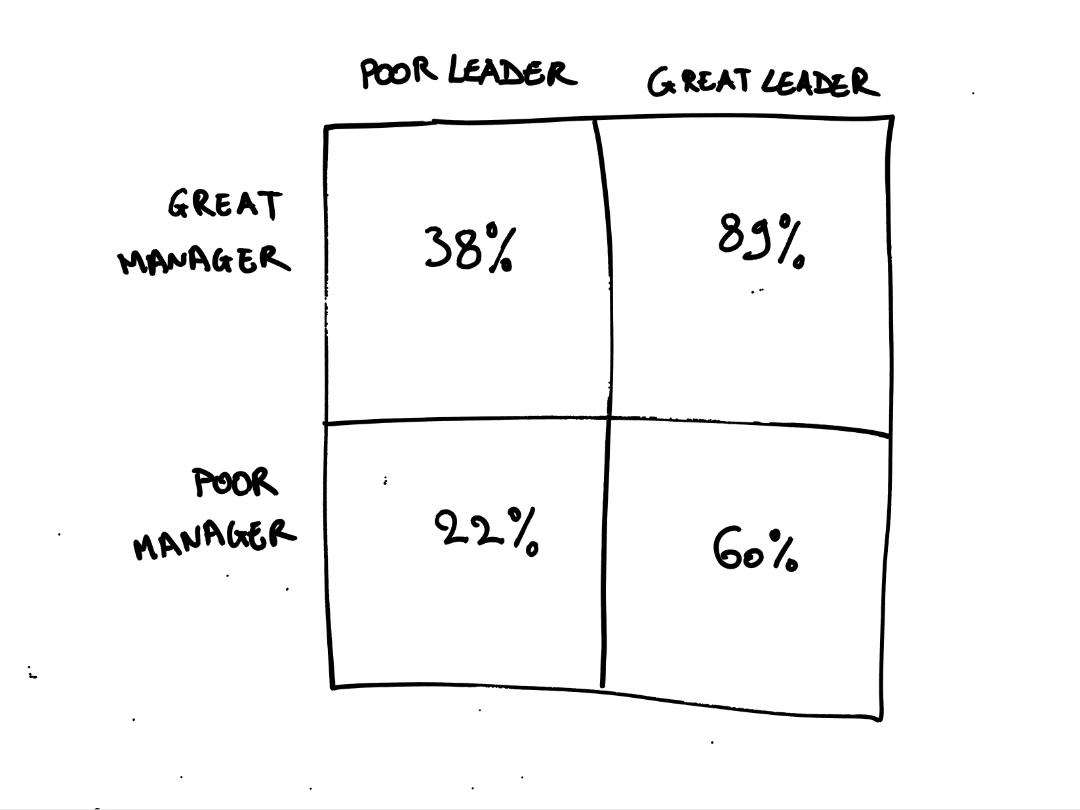And it is not managers.
Wooh… hold on. We have all heard the expression before that people don’t leave companies, they leave bad managers. While a direct manager is crucial in any organisation, and that she has a huge impact on the staff, unfortunately for the 44,900,000 results on Google claiming this, the statement is wrong. Bad managers are not the number one reason for people to leave companies.
1 versus 44,900,000 … They can’t be all wrong, right? So where does that statement come from?

The main source is Gallup, a management consultancy, that, incidentally, makes its money by offering management advice. Their report, which you can read here, starts with:
“One in two employees have left a job to get away from a manager and improve their overall life at some point in their career.”
And of course, just as their study confirms, managers play a huge role in the wellbeing of their employees, however, we can’t deny that colleagues and the general work environment do as well.
What are then the main reasons to leave a company? For this we have data from another study, this time from Cultureamp, an employee engagement platform. You can find that study here. Cultureamp wanted to verify whether that expression held any truth, and if so, how significant the impact was of bad managers.
They looked at data from over 300,000 employees who completed employee feedback surveys in 2017. They found that the top 3 reasons for people to leave were:
1. Lack of alignment
Alignment means first of all what somebody needs to be do in order to be successful. In addition, people need to receive recognition of their work so they stay motivated, and the environment needs to be focused on improving quality and decisions that are made to improve the results.
2. Lack of leadership
Why does the company exist and why does it matter? Is the leadership clear about the vision and how we will reach the goals and aspirations of the organisation or not? When there is no clarity here, people are far less engaged, and this is why it is the 2nd reasons for people to leave. When people do find organisations where the vision is clear, when the goals match the goals of the employee, then it is clear she will be more engaged with that other organisation.
3. Learning & development possibilities
The organisation needs to provide opportunities for career progression and / or skill development. This starts at the employee – manager level through 121 meetings, where coaching can help already developing the employee, and continues through formal learning opportunities in the organisation.
But is it really not the few bad managers that push the majority out of the organisation?
Well, even when Cultureamp focused on those 3 top reasons, they investigated if most managers are doing a good job and the fewer bad managers prompt far more people then to leave, but even then, they concluded based on their research that
“The data again supports the stronger effect of alignment, leadership and learning and development. Fewer people who rated these areas poorly indicated an intention to stay versus those who rated their manager poorly.
If bad managers were truly driving people out more than any other factor, we wouldn’t expect to see 32% of people who rated their manager poorest to still be indicating an intention to stay.”
The experience with their manager was actually at the bottom of the list!
Also interesting to note is that sometimes, when people do blame managers, for example for lack of career progression, often it is the system, not the manager that should be blamed. Managers are not in a position to create roles, when the system does not allow for that.
Cultureamp.com didn’t stop here. They dug deeper and compared the impact of leadership with the impact of managers, and in this setting, the worst setup is having a poor manager and poor leaders, with only 22% feeling committed to staying with the company. If we add a great manager to poor leadership, then still only 38% remains committed to staying with the company. If we have a poor manager and strong leaders, then the numbers jump to 60%.

Finally, the best result is the combination of great leaders and great managers, where a whopping 89% of the people are committed to staying.
So rather than blaming the managers, the leadership of the organisation should be blamed.
Have you ever left a company for one of those 3 reasons? Or was it because of a manager? Let me know…
Thanks for reading my blog…. You can read more in my book JUMP (UK or US). As always, keep on jumping the waves of disruption.
